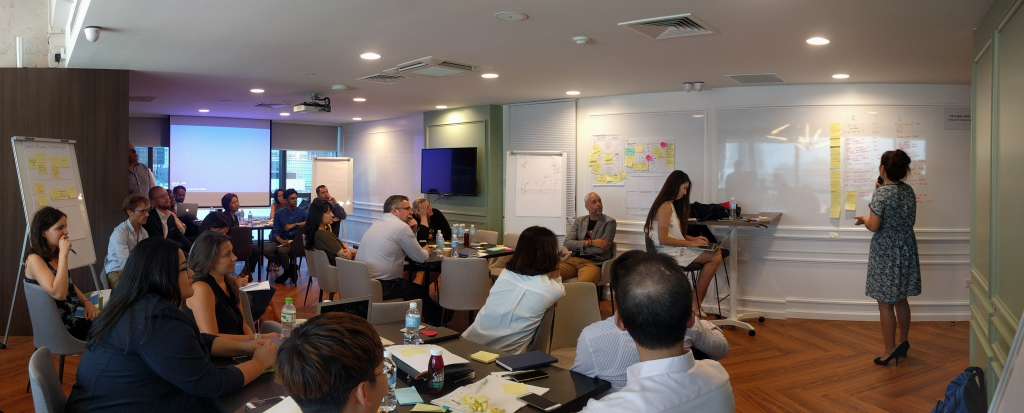Businesses are facing new challenges. They have to deal with new technologies such as blockchain or artificial intelligence, navigate competitive environments led by new powerful players such as Google or Amazon and thousand of startups trying to disrupt them. These new challenges have created new headaches for companies as they struggle with upskilling employees in order to help them adapt to the transforming environment.
Talent development professionals thus have a valuable opportunity to play an instrumental role in helping organisations adapt to disruption. Through the creation of learning opportunities for employee growth and achievement, talent development professionals become enablers in helping their organisations to create lasting change.
Anticipating the new knowledge needed, engaging leaders in the learning process and developing a learning culture at scale within the organization are some of the main challenges that our clients, Fortune 500 companies in various industries, are facing today.
This article provides examples of what we has worked for our clients as well as for other companies to overcome them.
Anticipating The Required Knowledge
The results of a recent study from LinkedIn highlights the gap between the focus of talent developers on training for today’s skills demands whilst executives emphasise on tomorrow’s skill gaps.
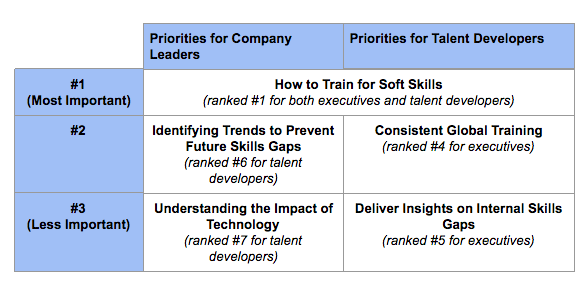
Source : LinkedIn 2018 Workplace Learning Report
It is crucial that the whole organization understands the impact of technology and future trends and how it will reshape their industry, so that learning and development strategies can be adapted to future skills requirements.
Some leaders are still in denial of the transformation in their industries and as a result, the necessity to reskill.
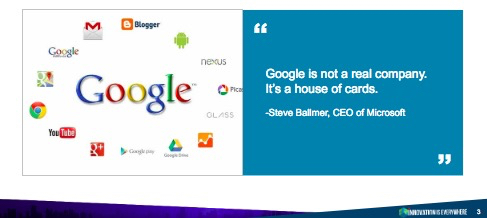
To overcome that challenge, we’ve provided trends reports, monthly newsletters and organized Lunch & Learn presentations for various clients such as Accorhotels, Ingenico, Danone and Natixis. These formats have contributed to creating awareness within the organization on the changes within their organizations.
Even for individuals who are excited by these changes impacting their business and are willing to champion transformation, they often struggle to do so. This stems from a feeling of being overwhelmed by the range of opportunities available and a lack of clarity on where to start due to constraints such as time, budget and other factors.
To bridge these different perspectives and capabilities, a solution which companies have adopted is the engagement of their leadership teams in learning expeditions.
Learning Expeditions (or LEX for short) are experiential visits to a particular ecosystem that offer teams the opportunity to understand the pace of change in a safe environment.
During a LEX, participants — who were previously in denial — are “shocked” out of their bubble as they get to see and experience for themselves the rapid pace of change and how it has become a competitive advantage for companies championing it. Alternatively, for individuals who were feeling overwhelmed, the LEX helps them prioritise their objectives and offers the opportunity of moving from idea to action by engaging key stakeholders in high-level partnerships.
For example, with one of our fast-moving consumer goods (FMCG) clients, their country-level directors were looking to address the topic of maintaining relevance in a fast-changing digital world. Working with their challenges, we helped them to identify that China, especially Beijing, was the place where competition was the fastest and required the most skill to stay relevant. Through the organisation of a LEX, the team had meetings with players such as Tencent and HTC Vive which offered an in-depth understanding of key technologies such as Virtual Reality and Big Data. Coupled with a commitment-taking workshop, leaders were able to select the strategies they wanted to champion for 2017 and prioritise actions and resources to achieve them.

Engaging Leaders in the Learning Process
Another barrier often faced in developing learning within an organisation is that employees feel that the courses and training which they are going for are completely irrelevant to their day jobs and are thus disengaged during the learning process.
Learning should be applicable to the employees’ day-to-day challenges. That’s how it will translate into direct results. The “completion rate” of learning programs isn’t a relevant KPI anymore for the new workplace. Employees today are consuming information in small bites, according to their immediate need, in line with the organization’s targets.
For example, the Asia-Pacific digital team of one of our hospitality clients needed to understand new user acquisition and engagement strategies to grow their app in the Asia-Pacific market.
Focusing on insights across industries, we offered 20 best practices, emphasizing on disruptive markets such as WeChat, to help their teams understand how to transform their marketing strategies. Coupled with a co-creation workshop with four startups, participants were able to develop 14 new strategic projects to drive growth for the app in Asia-Pacific.
To hold teams accountable, a follow-up session 6 months later further evaluated the strategies implemented. By encouraging individuals to go back and get the support of their teams to help make the projects a success, they were able to achieve 15% year-on-year growth compared to just 6% in previous years.
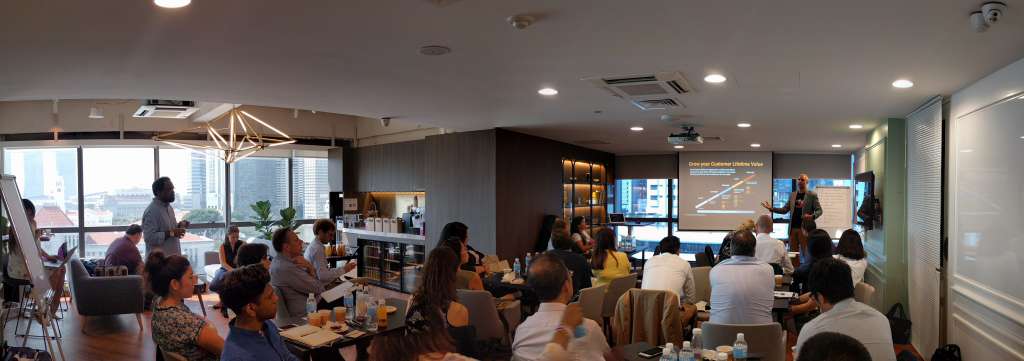
Developing a Learning Culture At Scale Within the Organization
How can we make learning part of the organization’s culture? Employees are already overwhelmed with their daily work and often perceive learning new skills as a burden. Businesses must make sure that employees are given the time to learn, and are rewarded for it.
Greater momentum across different business units and seniority levels is also required to initiate the cultural transformation.
Singapore-based DBS Bank has led change in this space with its vision of being a “22,000-person startup”.
In 2015, it started with design thinking masterclasses and hackathons for its senior leaders to focus the banking experience around the customer and transform their mindset to recognise that any startup can be a credible competitor. By 2016, its efforts emphasised instead on exposing over 5,000 DBS employees to design thinking and other digital concepts. To overcome the common excuse of having a lack of time by employees, DBS organised its customer journey workshops and hackathons during working hours, holding them across the Asia-Pacific region to broaden the impact on the organisation.
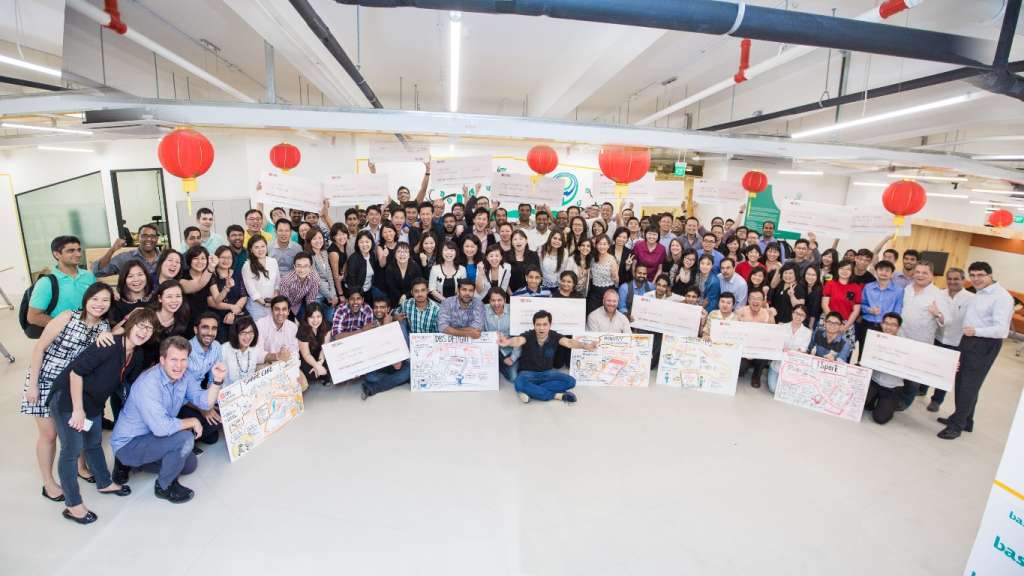
The bank has since launched over 1,000 experiments that have directly improved on the customer experience such as 24-hour banking services via a Video Teller Machine.
DBS, as well as some of our clients, have then turned to micro-learning apps to engage even more employees. With bite-sized content and leaderboards, micro-learning apps can be a powerful tool as long as the content is engaging. With quality relevant content, the results are real and impactful.
It is also good to remember that impact does not necessarily need to command significant resources. For example, our team here at Innovation is Everywhere dedicates a great amount of time everyday to learning. We use Diigo — a social bookmarking platform — to bookmark, highlight and share information within the team from online articles, reports and other sources of information. Diigo’s automatic daily updates allow bookmarked items to be delivered directly to inboxes, highlighting the latest news impacting our clients and ecosystems across Asia-Pacific, building the knowledge of the team to address the varied challenges faced by our clients.
Hope that these insights will help your organisation strengthen its learning culture.
Connect with us to get more insights on industry trends and best practices, organise Lunch & Learn, workshops or learning expeditions with us to meet the most innovative players from Asia.

